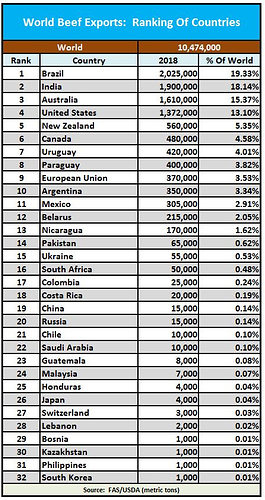That’s just not gonna happen, though.
It’s not that we’re “awful,” it’s that we are as we are. Most people’s consumption rises with their wealth and income; most people spend pretty much all they get. About a half a percent of the world’s people get to a standard of wealth that right now equates to being a ‘millionaire’ in current U.S. Dollars, something that isn’t nearly what it once was, due to the incredible debasement of our currency.
Socialism/Communism appeals to many people, at least at certain times in their lives, but in practice they work out poorly - this is human nature again - when we’re not working directly for our own benefit, we don’t produce nearly as much. Russia had collective farms, with the workers being allowed tiny plots of land for personal gardens - the yield on the state farms was about 1/10 of the personal plots, by land area. And in reality, almost all socialist countries run out of other people’s money, in the end.
Capitalism is not ‘perfect’ - almost everybody would say so, and that no human economic system can be. Totally unfettered capitalism leads to an incredibly wealthy monarchy and/or a handful of super-rich, with the rest being akin to serfs. The individual being rewarded for his own efforts and for his own ownership results in greater overall wealth, however (versus other economic systems), with the exact distribution of it being somewhat dependent on the modifications to the capitalism at hand.
You say we’re good at cooperating, but we’re also mighty warlike. Tribalism? Look at the amount of horror visited on the world by religion, just by the fact that “They believe differently than we do.” Resource shortages make for big trouble, i.e. “All war is ultimately caused by population pressure,” and we’ve had no shortage of wars.
Good question. We are already very overpopulated, by some measures. What is the actual carrying capacity of the earth - where, with modern knowledge and some improvement in our ways and a lessening of our harmful impact - can things be sustainable? I’ve seen good analyses that say 3 or 4 billion people.
The birth rate has already leveled out, bigtime, in the U.S. and quite a few other countries around the world. The fertility rate is down around 1.75, so not even replacement rate.
What would I do? Mostly, I don’t have any good solutions - and feel that there really are not any, for the most part, i.e. the possible and the practical are still going to result in some real declines in standards of living, let alone quite a trashing of the “things get better and better” mantra that so many of us became used to after World War II and with deficit financing. Yet there would definitely be some changes made. I don’t see any system that is unsustainable as good. So, beginning with the economy, no more deficits.


 ), here’s the Danish Prime Minister Lars Lokke Rasmussen, speaking at Harvard in 2015: “…some people in the U.S. associate the Nordic model with some sort of socialism. Therefore, I would like to make one thing clear. Denmark is far from a socialist planned economy. Denmark is a market economy.” In the ‘2019 Index of Economic Freedom,’ Denmark ranks 14th out of 186 countries, barely behind the U.S. at
), here’s the Danish Prime Minister Lars Lokke Rasmussen, speaking at Harvard in 2015: “…some people in the U.S. associate the Nordic model with some sort of socialism. Therefore, I would like to make one thing clear. Denmark is far from a socialist planned economy. Denmark is a market economy.” In the ‘2019 Index of Economic Freedom,’ Denmark ranks 14th out of 186 countries, barely behind the U.S. at 
 .
.
